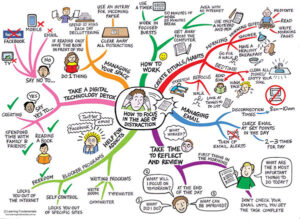Choosing the Right SEO Company for Digital Marketing
In the vast landscape of the internet, getting noticed can be quite the challenge. Whether you’re a budding startup or an established business, harnessing the power of digital marketing is essential. And at the heart of effective digital marketing lies the selection of a proficient SEO (Search Engine Optimization) company. But where do you begin, especially if you’re new to this? We’re here to guide you through the process in simple terms.
1. Understand Your Goals:
First and foremost, know what you want to achieve with digital marketing. Are you looking to boost website traffic, increase sales, or enhance your online presence? Your goals will determine the type of SEO services you need.
2. Ask for Recommendations:
Turn to your network, colleagues, or fellow business owners for recommendations. Hearing about real experiences with SEO companies can be incredibly valuable.
3. Do Your Homework:
Research potential SEO companies online. Look at their websites, read client reviews, and assess their portfolio. Get a sense of their expertise and the industries they’ve worked in.
4. Seek Transparency:
When reaching out to SEO companies, make sure they are transparent about their processes. Ask them about their strategies, the tools they use, and how they plan to measure success.
5. Assess Your Budget:
Digital marketing can vary in cost. Be clear about your budget, and see if the SEO company can work within those constraints. Remember, SEO is an investment in your business’s online future.
6. Look for Experience:
Experience matters in the SEO world. An experienced company is more likely to have a deep understanding of search engine algorithms and industry trends.
7. Get a Customized Plan:
A one-size-fits-all approach rarely works in digital marketing. A good SEO company should offer you a customized plan tailored to your specific needs and goals.
8. Ask About Reporting:
Inquire about how the company will provide you with progress reports. Regular updates and data insights are crucial for assessing the effectiveness of the SEO strategy.
9. In-House Team vs. Outsourcing:
Understand whether the SEO company has an in-house team or if they outsource their work. In-house teams often provide better control and communication.
10. Assess Their Communication:
Effective communication is key. Ensure the SEO company is responsive and that you can reach them when you have questions or concerns.
11. Avoid Promises of Instant Results:
Be cautious of companies that promise instant or guaranteed results. SEO takes time to yield tangible outcomes, and ethical SEO companies will set realistic expectations.
12. Trust Your Instincts:
Finally, trust your gut feeling. Choose a company that you feel comfortable and confident working with.
Selecting the right SEO company is like finding a business partner for your online success. Take your time, do your research, and choose a company that aligns with your goals and values. Your digital marketing journey starts with this essential step.
- Published in Digital Marketing, Networking
The Art of Choosing the Right Tools,Language or Technology for Your Project
The choice of language or technology and the corresponding database for a project’s development depends on various factors, including the project’s requirements, goals, and constraints. Here are some common scenarios and suitable choices:
-
Web Development:
- Language/Technology: HTML, CSS, JavaScript, PHP, Python, Ruby, Java, .NET, etc.
- Database: MySQL, PostgreSQL, MongoDB, SQLite, or SQL Server, depending on data structure and scalability requirements.
-
Mobile App Development:
- Language/Technology: Java or Kotlin for Android, Swift or Objective-C for iOS, or cross-platform frameworks like React Native or Flutter.
- Database: SQLite for local storage, and RESTful APIs or cloud-based databases for data synchronization.
-
E-commerce Website:
- Language/Technology: E-commerce platforms like Magento, WooCommerce (WordPress), Shopify, or custom development using PHP, Python, Ruby on Rails, etc.
- Database: MySQL or PostgreSQL for product and customer data.
-
Enterprise Software:
- Language/Technology: Java, C#, or JavaScript (Node.js) for server-side development. A mix of technologies for the front-end.
- Database: PostgreSQL, Oracle, SQL Server, or other enterprise-grade databases, depending on scalability and data security requirements.
-
Data Analytics Platform:
- Language/Technology: Python (with libraries like Pandas and NumPy), R, or a Big Data technology stack (Hadoop, Spark, etc.).
- Database: Hadoop Distributed File System (HDFS), NoSQL databases (e.g., Cassandra), or cloud-based data warehouses like Amazon Redshift or Google BigQuery.
-
IoT (Internet of Things) Application:
- Language/Technology: Embedded C/C++ for IoT devices, Python, or Node.js for data processing, and mobile app development for user interfaces.
- Database: NoSQL databases like MongoDB, and cloud-based storage for scalability.
-
Blockchain Application:
- Language/Technology: Solidity for smart contracts, JavaScript or TypeScript for dApps (decentralized applications).
- Database: Distributed ledgers and decentralized databases specific to the blockchain platform (e.g., Ethereum, Hyperledger Fabric).
-
Machine Learning and AI:
- Language/Technology: Python with libraries like TensorFlow, PyTorch, or scikit-learn.
- Database: NoSQL or SQL databases, depending on data structure and machine learning model requirements.
-
Game Development:
- Language/Technology: Game engines like Unity (C#), Unreal Engine (C++), or custom development using C++ or other languages.
- Database: Often custom-designed databases for game state and player data.
-
Content Management System (CMS):
- Language/Technology: WordPress (PHP), Drupal, Joomla, or custom development using PHP, Python, Ruby, etc.
- Database: MySQL or PostgreSQL for content storage.
The choice of language, technology, and database should be made after a thorough analysis of the project’s specific needs, scalability requirements, budget, and the development team’s expertise. It’s essential to align these choices with the project’s goals to ensure its success.
- Published in Creativity, Designing, Mobile, Technology, Uncategorized






